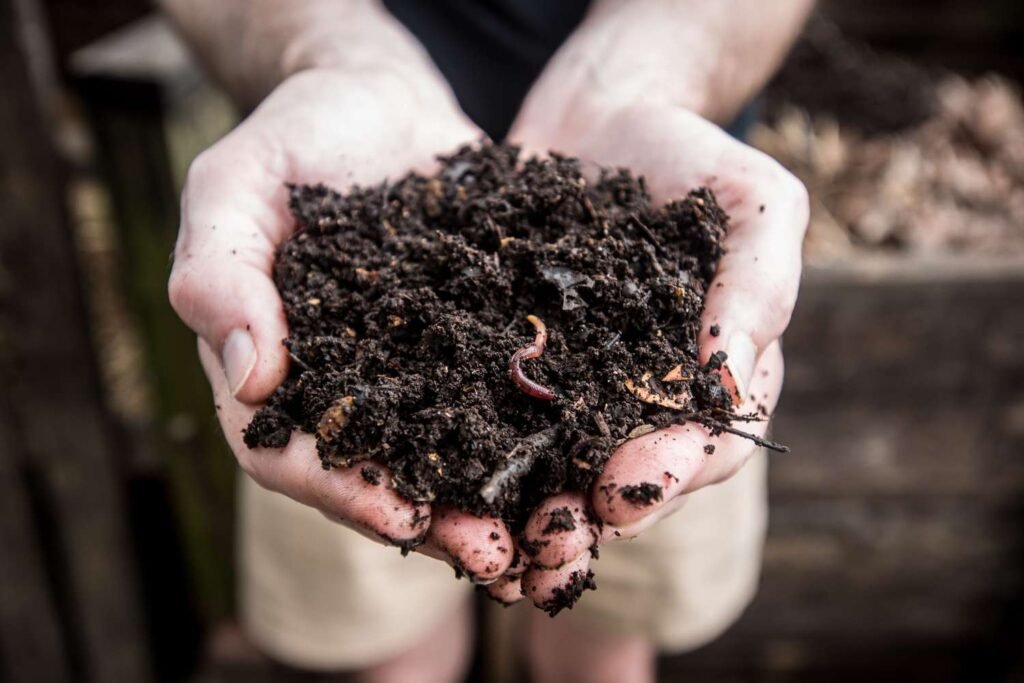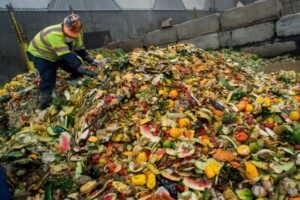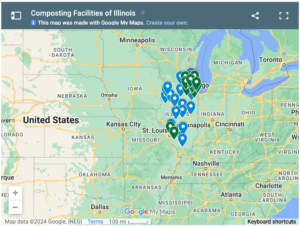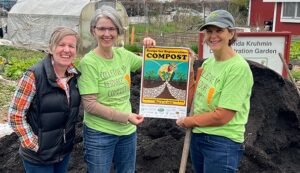A Future That Is Not Only Good - But Green
By Asjia Chapin, Marketing & Business Development Intern

First used in 1826 by French author Anthelme Brillat-Savarin, the saying “you are what you eat” embodies the ever-important impact nutrition has on our quality of life. But what happens to what you don’t eat?
As stated by Feeding America, in the United States alone, eighty million tons of food go to waste each year. This quantity of food is equivalent to 149 billion meals. These staggering rates of food waste put the conditions of the environment at risk due to the greenhouse gases food generates when dumped into landfills. In fact, food waste, according to Earth.org, generates one fifth of the greenhouse gases humans produce. With greenhouse gases playing a major role in global warming, food waste is contributing to the degradation of the planet as we know it. In order to combat these effects, countless businesses, organizations, and individuals have taken on the challenge of minimizing and utilizing food waste.
One such approach to tackling this ever-present dilemma is composting. As stated by NRDC, composting, or “the natural process of recycling organic matter…into valuable fertilizer”, keeps food out of landfills. In doing so, composting limits the production of greenhouse gases. The environmental benefits of composting do not stop there. Additionally, the process of turning said organic material into fertilizer aids climate adaptation and resilience. Discussed by the EPA, the nutrient-rich soil generated by composting helps the ground to absorb water and prevent the runoff of pollutants during periods of heavy rain. In fact, according to the Minnesota Stormwater Manual, an experiment observing the pollution retention qualities of compost concluded that runoff from a plot containing soil amended with compost contained 70 percent less phosphorus and 7 percent less nitrate than runoff from plots with till-only soil. Both of these compounds, when flushed into natural bodies of water, fuel algal blooms that contaminate drinking water, produce toxins, and even result in the death of aquatic animals. By filtering the water that could potentially end up as drinking water or in the homes of animals, composted material keeps our water sources cleaner. On top of this benefit, this same soil is effective at storing water, preserving this important resource in the ground for later access during periods of drought.

Despite these benefits, learning to compost, and sustainably continuing the practice, can be overwhelming for companies. For instance, many businesses and individuals lack the knowledge to tackle composting head on. From choosing a compost bin, to maintaining an adequate composting environment, to handling the gasses produced by the process, composting involves levels of expertise many businesses simply do not possess. Other factors preventing businesses from composting include weather conditions, pests, concerns of contaminations, regulations, and more. As a result of these factors, this form of waste management is often exchanged for more convenient alternatives, such as dumping waste in landfills.
Aware of the many challenges composting brings, the Illinois Food Scrap & Composting Coalition (IFSCC) is a non-profit organization that seeks to make composting more attainable for organizations through “advocacy, program implementation, market and business development, policy, and outreach”. Founded in 2012, this coalition is composed of more than one hundred and fifty businesses, nonprofits, and more across the state of Illinois. IFSCC aims to make composting more sustainable and attainable through countless programs and initiatives. These initiatives have successfully contributed to minimizing the amount of food waste sent to landfills. For instance, the coalition had successfully processed 36,499 tons of food scraps in 2018. Some of the initiatives that contributed to this success include food scrap composting challenges, educational resources, maps of food scrap-generating businesses, and more.

One of the most notable features of this organization is the collaboration it has with restaurants in Illinois. For instance, businesses may choose to partner with IFSCC by using their haulers to deliver food waste to compost processors. This organization’s website has a detailed and routinely updated map of haulers on both a commercial and residential level dedicated to transporting food waste to composting sites. Furthermore, on this same online page, IFSCC has information on the various compost processors in the area, facilitating connections between businesses and compositing sites. Together, these resources remove many of the barriers restaurants face in tackling food waste.
Additionally, consumers are increasingly cognizant, and concerned by, global climate change. As a result, a popular alternative is to dine at restaurants that aim to be more environmentally sustainable. In fact, according to Hospitality Technology, 43% of consumers are willing to pay higher prices for food produced by sustainable restaurants. IFSCC helps inform consumers by featuring the restaurants they collaborate with on their website, which is paired with a tiered mapping system to help identify the most sustainable restaurants to dine at. With gold level partners representing restaurants that compost pre-consumer and post-consumer scraps, demonstrate high levels of commitment to food scrap diversion, and analyze sales trends to limit food waste from the source, these restaurants represent businesses dedicated to tackling food waste and its impact on the environment at the highest level. Furthermore, restaurants categorized as gold level partners by IFSCC have the potential to unlock potential financial value given their stronger proposition to diners.
In addition to the various environmental benefits mentioned above, composting also has the potential to create sustainable and long-term economic benefits to these same communities. These benefits manifest in the creation of jobs and the generation of a priceless commodity-compost. Namely, the initiative that IFSCC stands for supports countless local jobs and businesses. From the transportation of the food waste, to the process of food waste, to the sale of finished compost to consumers, IFSCC’s operation fuels the economies of the communities it supports. On a general level, composting requires more jobs than other forms of waste disposal. According to Ecocyle, composting generates “at least twice as many jobs as landfills and four times as many jobs as incineration facilities”. On top of this, the compost generated contains spillover benefits for agricultural industries. IFSCC oversees the sale of the compost it produces, distributing fresh soil full of nutrients and minerals. The US Composting Council reports that compost has various agricultural benefits, including suppressing pests, discouraging weeds, and balancing soil density. By limiting the impacts of some of the largest hurdles farmers face, compost holds the power to strengthen agricultural communities in a manner that is less reliant on chemicals. In the long term, the natural benefits of compost result in lower long-term maintenance costs for projects. Once again, this finished product of composting provides yet another economic benefit.

How can restaurants and businesses get started with IFSCC? Businesses wanting to take the first step towards composting their food scraps independently can browse the various educational resources available on the nonprofit’s website. With this information, businesses have all the sources they could possibly need to take the plunge and contribute to a better, brighter future.
If our world is as much about what we don’t eat as it is about what we do, we must work as a collective to fuel the economic and environmental sustainability of our communities. The Illinois Food Scrap & Composting Coalition is a non-profit that holds the power to influence substantial good. By partnering with this nonprofit, businesses are setting not only themselves, but the communities they engage with, up for success.
We geek out on all things brand strategy, stakeholder business models, and employee development programs. Interested in learning more about how we can help your organization? Get in touch with us!




